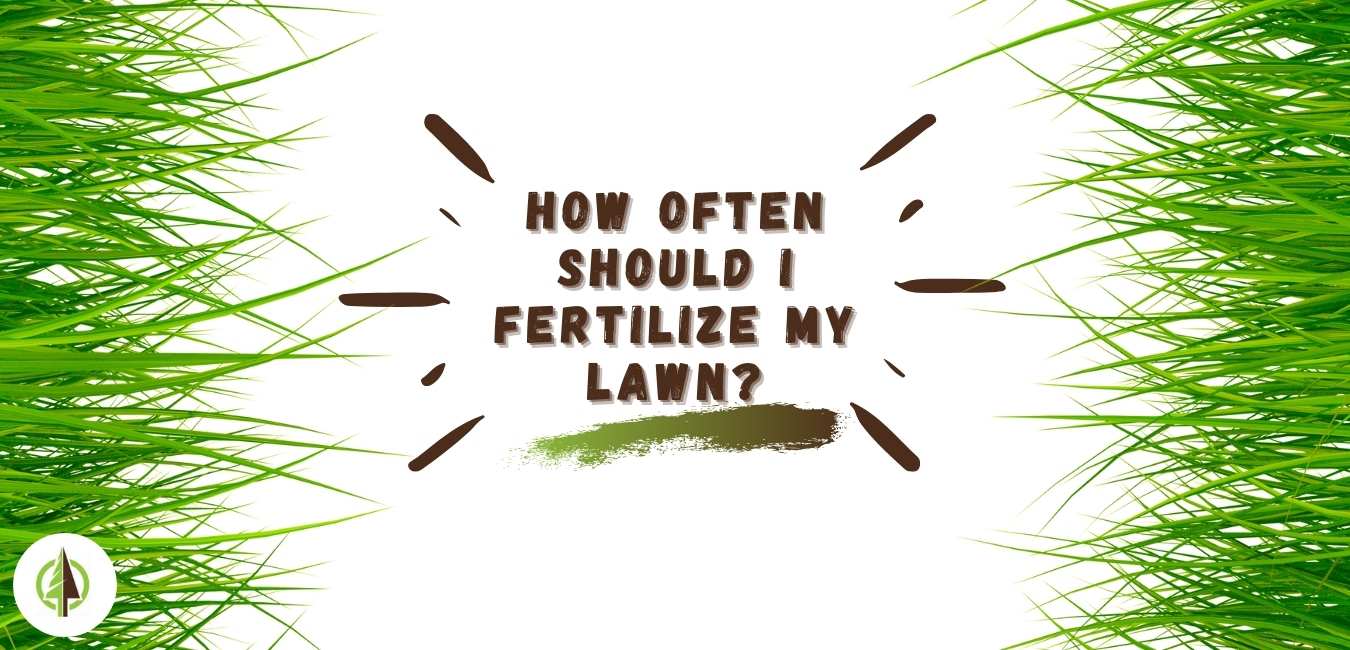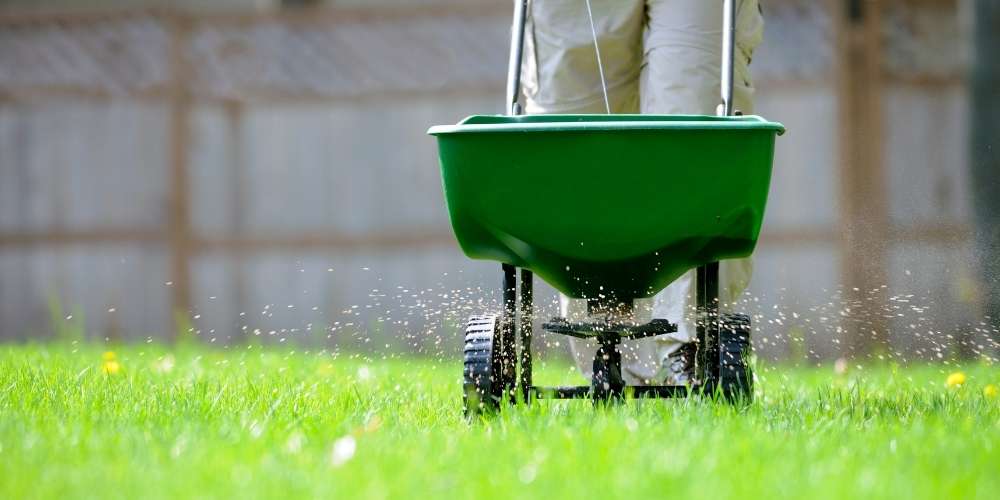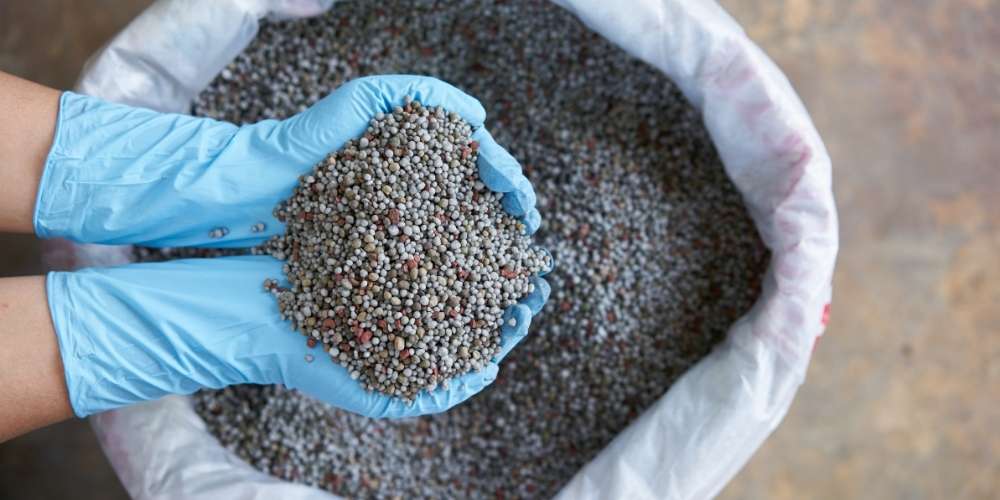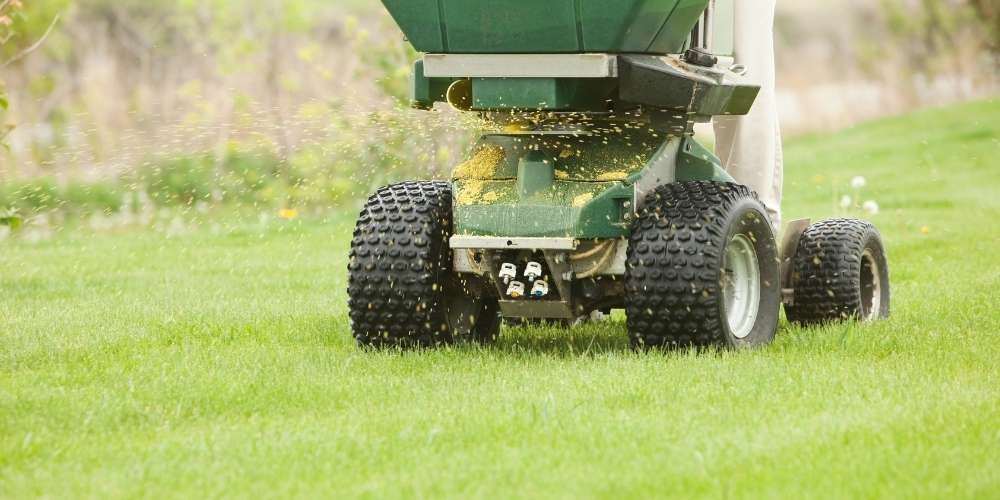
This is going to be your year. The year you finally have a lush green lawn.
Maybe your turf is a total disaster, or maybe it just needs some tweaking to thicken up and green-up. No matter what your situation, you are likely thinking the answer to your lawn problems is fertilizer.
Let’s look at when is the best time to fertilize your lawn and how many times you should fertilize this year to get that turf you have always dreamed of.
What time of day is best to fertilize?
The time of day you fertilize does not really matter. Some recommend morning so that you have time to water the grass after application and for the grass to dry out before nightfall. Some recommend later in the afternoon to avoid the full sun.
Fertilization is more about how long between applications, what type of applications, and what you do after the application, which we will discuss next. However, it is important to mention, that if it is a uniquely hot day with excessive sun, it may be wise to wait until temperatures cool down.

How many times a year should I fertilize?
For Northern Michigan lawns, Fall and Spring applications are most important. The grass is going into dormancy in the fall and coming out of dormancy in the Spring. It is vital to get the grass the nutrients it needs at these times.
We typically recommend a fertilizer plan of five applications:
Early Spring- Application 1
The Early Spring fertilizer application is important as it wakes your grass up and has crabgrass prevention in it. Crabgrass prevention is key in the Spring as it is already beginning to germinate in your turf. Be sure to not fertilize too early in the Spring as putting fertilizer on the frozen ground where grass has not started to grow yet is not only a waste but a potential environmental hazard as well. The grass is likely still dormant and the nutrients are not going to provide any benefit.
Fertilizing too early can also encourage top growth of your grass, which means the nutrients are not pulled down into the root of your grass. A strong root system is critical for your grass to survive and thrive in the warm summer months.
Late Spring and Late Summer- Applications 2 & 4
As grass really starts growing, the goal of fertilizer shifts to focus on weed control before/after the hotter temperatures arrive. Applications 2 and 4 have both slow-release balanced fertilizer and weed control.

Summer- Application 3
The Summer fertilizer application focuses on feeding your lawn and helping it sustain growth during stress. There is no weed control added to this application, only spot spraying of weeds that popped up after the Late Spring round.
Fall-Application 5
This is really the most important fertilizer applied all season. It is still slow-release and has nutrients for extended feeding and root development. The nutrients provided create growth in the top of the grass that will be pulled to the root allowing energy to be stored up that will be used next spring to encourage growth. Fall fertilization allows the grass time to recover from the hot summer as well.
How long should I wait between fertilizer applications?
Fertilizer applications should be spread anywhere between 4-6 weeks apart. Slow-release formulas are designed to feed your lawn just as their name states, slowly releasing nutrients into your turf.
Can you fertilize too much?
You definitely can fertilize your lawn too much. Northern Michigan grass types thrive with slow-release fertilization formulas. Applying too much fertilizer or fertilizing too often can cause weak root systems in your lawn, upset the pH in the soil, cause burnt brown areas, and can negatively impact the environment with run-off.

What do I do after I fertilized?
This step is one commonly missed by homeowners. Be sure to water your grass after you fertilize it. It helps the nutrients from the granules break down and seep into your soil.
My lawn is still struggling, now what?
For some lawns, fertilization alone is not going to work. Proper mowing techniques, aeration, and overseeding are all options that may help turn around grass that is really struggling. To learn more about transforming struggling lawns, check out this blog.
Turning Your Turf Around with TruNorth Landscaping
Fertilization is a task that many homeowners try to tackle themselves. If you want to DIY, be sure to select the right type of fertilizer and carefully read the instructions on the bag. While fertilization seems to be an ‘easy’ outdoor task, consider that you are dealing with a chemical that can really impact the look of your property and the environment as a whole. This being said, we do recommend consulting a professional.
Green Industry Professionals are well qualified to fertilize your lawn. All of our applicators are certified by the state of Michigan, meaning they took several hours of courses in how to effectively fertilize plantings and grass and how to attack weeds. In order to maintain their certification, applicators have to take continued education each year. All of this education allows our team to feed your lawn well and at the correct times. Our experts can diagnose issues with your turf as well, ones that may go beyond just a fertilization mistake.
Ready to have the best lawn on the block in Grand Traverse or Leelanau County, MI? If so, meet with our team of experts, choose a solution to improve your property, and get ready to sit back, relax, and enjoy your beautiful outdoor space.
Get started today with a consultation!
Want tips and tricks for your lawn & landscaping?
Sign Up For Our Free Quarterly Newsletter
We take your personal information very seriously. We will not share any of the information you provide with any 3rd parties. Provided information will be used specifically to contact you in regards to your inquiry.
